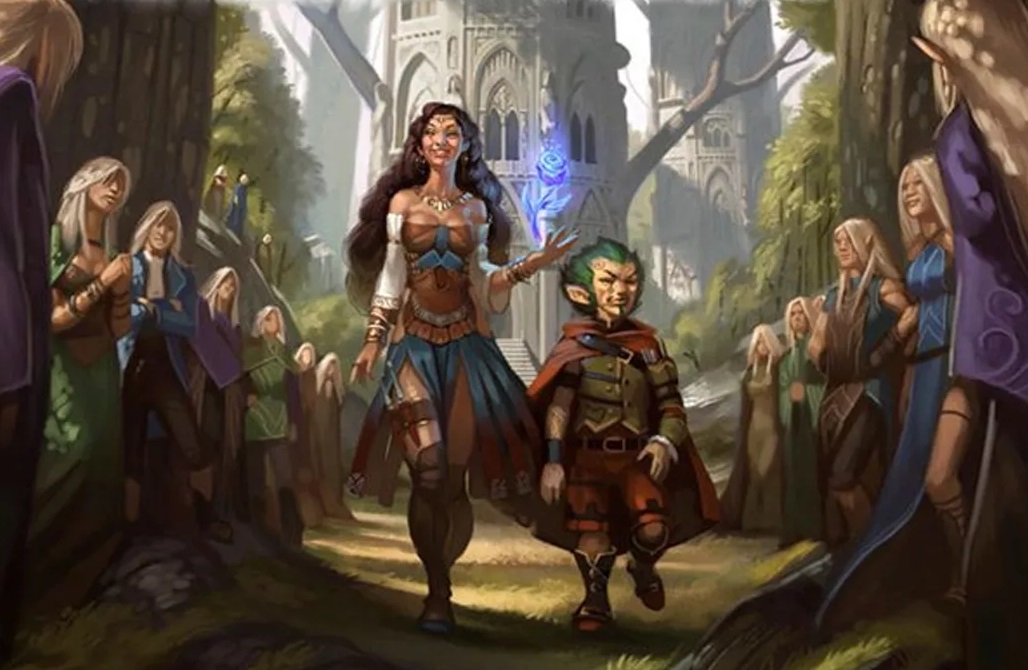Difference between revisions of "Experience Level"
Tao alexis (talk | contribs) |
Tao alexis (talk | contribs) |
||
| (9 intermediate revisions by 2 users not shown) | |||
| Line 1: | Line 1: | ||
| − | This is a measure of a character’s proficiency in a given profession, used in the game to separate combatants according to their combat potential. It is gained through experience. A spellcaster, assassin, fighter, monk, paladin, ranger or thief are considered elite combatants, able to cast spells, fight with a superior THAC0 and employ a wide range of sage fields, studies and abilities. Moreover, characters with a level have the benefit of better hit points. They will die if damage reduces them below -9 hit points. | + | [[File:Experience Level.jpg|right|490px]] |
| + | This is a measure of a character’s proficiency in a given profession, used in the game to separate combatants according to their combat potential. It is gained through [[Experience (X.P.)|experience]]. A [[Spellcasting|spellcaster]], [[Assassin (class)|assassin]], [[Fighter (class)|fighter]], [[Monk (class)|monk]], [[Paladin (class)|paladin]], [[Ranger (class)|ranger]] or [[Thief (class)|thief]] are considered elite combatants, able to cast spells, fight with a superior [[THAC0]] and employ a wide range of [[Sage Field|sage fields]], [[Sage Study|studies]] and [[Sage Ability|abilities]]. Moreover, characters with a level have the benefit of better [[Hit Points|hit points]]. They will [[Death|die]] if [[Damage (hit points)|damage]] reduces them below [[Negative Hit Points|-9 hit points]]. | ||
For most classes, particularly spellcasters, learning the skills of any class requires years of education. It is therefore unusual that any non-levelled character will have the opportunity to matriculate to being levelled. However, non-levelled characters do collect experience, and in the same way as their more capable peers. | For most classes, particularly spellcasters, learning the skills of any class requires years of education. It is therefore unusual that any non-levelled character will have the opportunity to matriculate to being levelled. However, non-levelled characters do collect experience, and in the same way as their more capable peers. | ||
| − | See Also, | + | <br> |
| − | + | See Also,<br> | |
| − | Combat | + | [[Combat]]<br> |
| − | Commoner | + | [[Commoner (non-player character)|Commoner]]<br> |
| − | Comrade | + | [[Comrade (lay combatant)|Comrade]]<br> |
| − | + | [[Hireling]]<br> | |
| − | Player | + | [[Soldier-at-Arms (profession)]]<br> |
| + | [[Player Characters]]<br> | ||
| + | [[The Adventure]] | ||
Latest revision as of 23:45, 13 August 2023
This is a measure of a character’s proficiency in a given profession, used in the game to separate combatants according to their combat potential. It is gained through experience. A spellcaster, assassin, fighter, monk, paladin, ranger or thief are considered elite combatants, able to cast spells, fight with a superior THAC0 and employ a wide range of sage fields, studies and abilities. Moreover, characters with a level have the benefit of better hit points. They will die if damage reduces them below -9 hit points.
For most classes, particularly spellcasters, learning the skills of any class requires years of education. It is therefore unusual that any non-levelled character will have the opportunity to matriculate to being levelled. However, non-levelled characters do collect experience, and in the same way as their more capable peers.
See Also,
Combat
Commoner
Comrade
Hireling
Soldier-at-Arms (profession)
Player Characters
The Adventure
